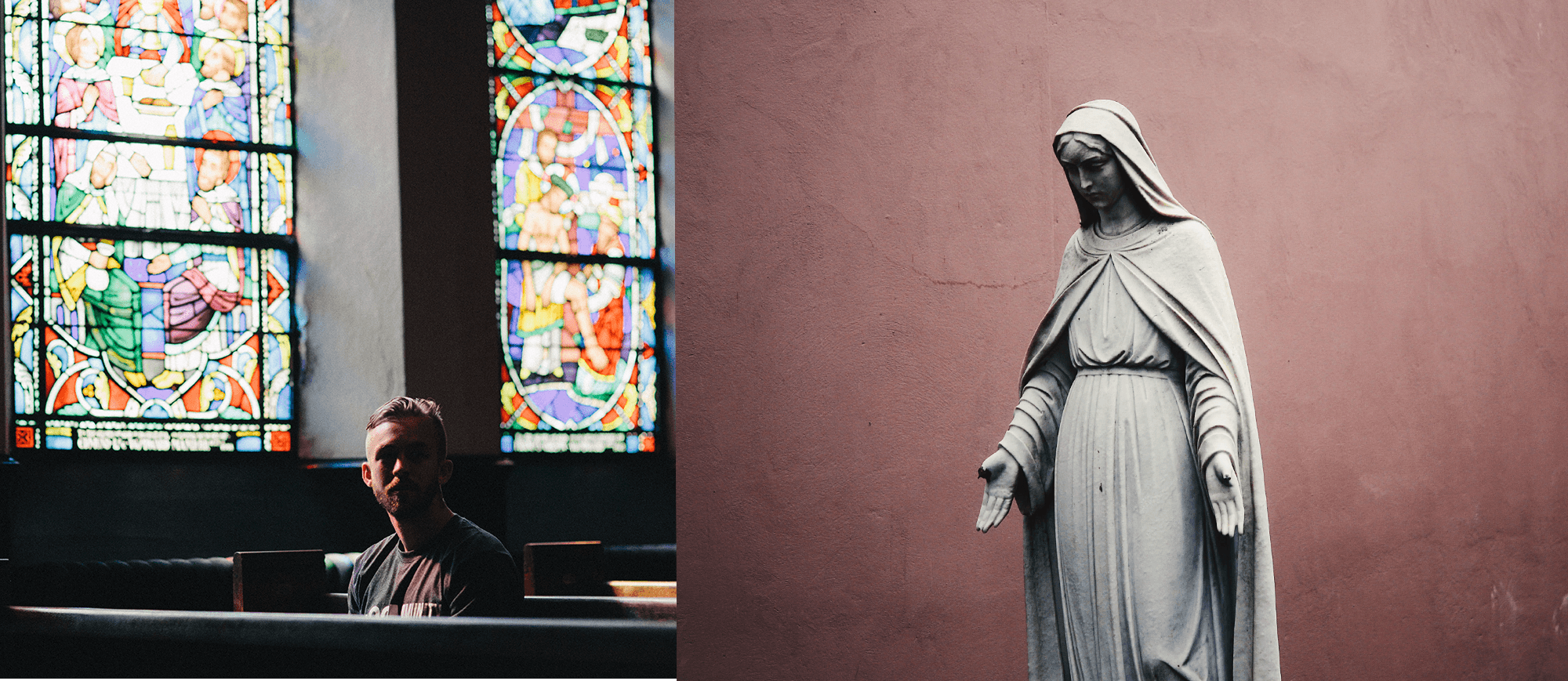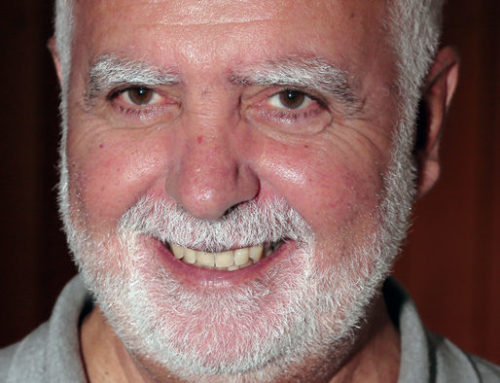Mental Illness Theological Framework
The National Catholic Partnership on Disability (NCPD) sets forth the following framework as a guide to the Church’s ministry for and with people with mental illness.
HUMAN LIFE IS SACRED. EVERY PERSON IS CREATED IN GOD’S IMAGE. A PERSON’S DIGNITY AND WORTH CANNOT BE DIMINISHED BY ANY CONDITION INCLUDING MENTAL ILLNESS.
“Whoever suffers from mental illness ‘always’ bears God’s image and likeness in themselves, as does every human being. In addition, they ‘always’ have the inalienable right not only to be considered as an image of God and therefore as a person, but also to be treated as such.” Pope John Paul II, International Conference for Health Care Workers, on Illnesses of the Human Mind, November 30, 1996.
“Thus says the Lord, he who created you, O Jacob, he who formed you, O Israel: Do not fear, for I have redeemed you; I have called you by name, you are mine. When you pass through the waters, I will be with you; and through the rivers, they shall not overwhelm you; when you walk through fire you shall not be burned, and the flame shall not consume you” Isaiah 43: 1-2
THE PAIN AND SUFFERING OF MENTAL ILLNESS IS REAL – BUT SO IS HOPE
“Christ took all human suffering on himself, even mental illness. Yes even this affliction, which perhaps seems the most absurd and incomprehensible, configures the sick person to Christ and gives him a share in his redeeming passion” Pope John Paul II, International Conference for Health Care Workers, on Illnesses of the Human Mind, November 30, 1996
“Blessed be the God and Father of our Lord Jesus Christ, the Father of compassion and God of all encouragement, who encourages us in our every affliction, so that we may be able to encourage those who are in any affliction with the encouragement with which we ourselves are encouraged by God. For as Christ’s sufferings overflow to us, so through Christdoes our encouragement also overflow.” 2 Corinthians 1:3

WE ARE THE BODY OF CHRIST AND ACCOMPANY ONE ANOTHER IN LIVING WITH MENTAL ILLNESS AND RECOGNIZE THE UNIQUE IMPORTANCE OF A LOVING FAMILY
“Those living with a mental illness should never bear these burdens alone, nor should their families who struggle heroically to assist their loved ones. We Christians must encounter them, accompany them, comfort them and help bear their burdens in solidarity with them – offering our understanding, prayers, and tangible and ongoing assistance.” ‘Hope and Healing’, A Pastoral Letter from the Bishops of California on Caring for those who Suffer from Mental Illness Addressed to All Catholics and People of Goodwill. May 1, 2018
“The Church will have to initiate everyone – priests, religious and laity – into this “art of accompaniment” which teaches us to remove our sandals before the sacred ground of the other (cf. Ex 3:5). The pace of this accompaniment must be steady and reassuring, reflecting our closeness and our compassionate gaze which also heals, liberates and encourages growth in the Christian life.” Pope Francis, Evangelii Gaudium, no.169, November 23, 2013.
“Bear one another burdens, and in this way, you will fulfill the law of Christ.” Galatians 6:2
THE WORD OF GOD AFFIRMS THE DIGNITY OF ALL PEOPLE. INTERPRETATION OF SCRIPTURE SHOULD BE CONSISTENT WITH THE CURRENT UNDERSTANDING OF MENTAL ILLNESS. This is very apparent when we consider those who have died by Suicide.
“We should not despair of the eternal salvation of persons who have taken their own lives. By ways known to him alone, God can provide the opportunity for salutary repentance. The Church prays for persons who have taken their own lives.” Catechism of the Catholic Church #2283
“We have no better example of how to respond to those with mental illness than that of Jesus Christ. Time and again throughout the New Testament, we encounter our Lord’s mercy toward this population. The curing of this affliction in men, women, and children was a central part of Jesus’ healing ministry. Always, we saw Him engage these individuals in the same way he would engage anyone else, with tenderness. We are called to do no less.” ‘For I Am Lonely and Afflicted’, Toward a just response to the needs of people with mental illness, A Statement of the Catholic Bishops of New York State, February 4, 2014.
“Jesus went through all the towns and villages, teaching in their synagogues, preaching the good news of the kingdom and healing every disease and sickness.”Matt 9:35
“My soul is deprived of peace, I have forgotten what happiness is; remembering it over and over, my soul is downcast. But this I will call to mind; therefore I will hope: The Lord’s acts of mercy are not exhausted, his compassion is not spent They are renewed each morning—great is your faithfulness!” Lamentations 13: 17, 20-23

Recommended action items for a parish mental health ministry:
Listen: Listen with compassion; form relationships.
Learn: Learn about local mental health systems. Invite someone from there to speak to parish staff
Believe: Believe in recovery and encourage it.
Refer: Know how and where to make a referral for adults, youth, and children
Pray: Include petitions relating to mental illness in Prayers of the Faithful
Include: Include parents, siblings, spouses, children and extended family in pastoral care; they are impacted as well
Invite: Invite persons with mental illness who live in group homes or apartments near your parish to worship and social events.
Accompany: Specifically include mention of mental illness when inviting parishioners to a healing service.
Visit: Visit at home, in the hospital, on the streets, or in jail after getting the person’s approval. Stigma is still far to present for people with a mental illness.
Educate: Invite parish groups to have speakers on mental illness at their meetings. Especially consider peer support specialists.
Advocate: Defend the dignity of individuals with mental illness and oppose stigma and discrimination. Encourage reform and improvements to the criminal justice and health care systems and support efforts to promote supportive employment and affordable housing for people living with a mental illness.










